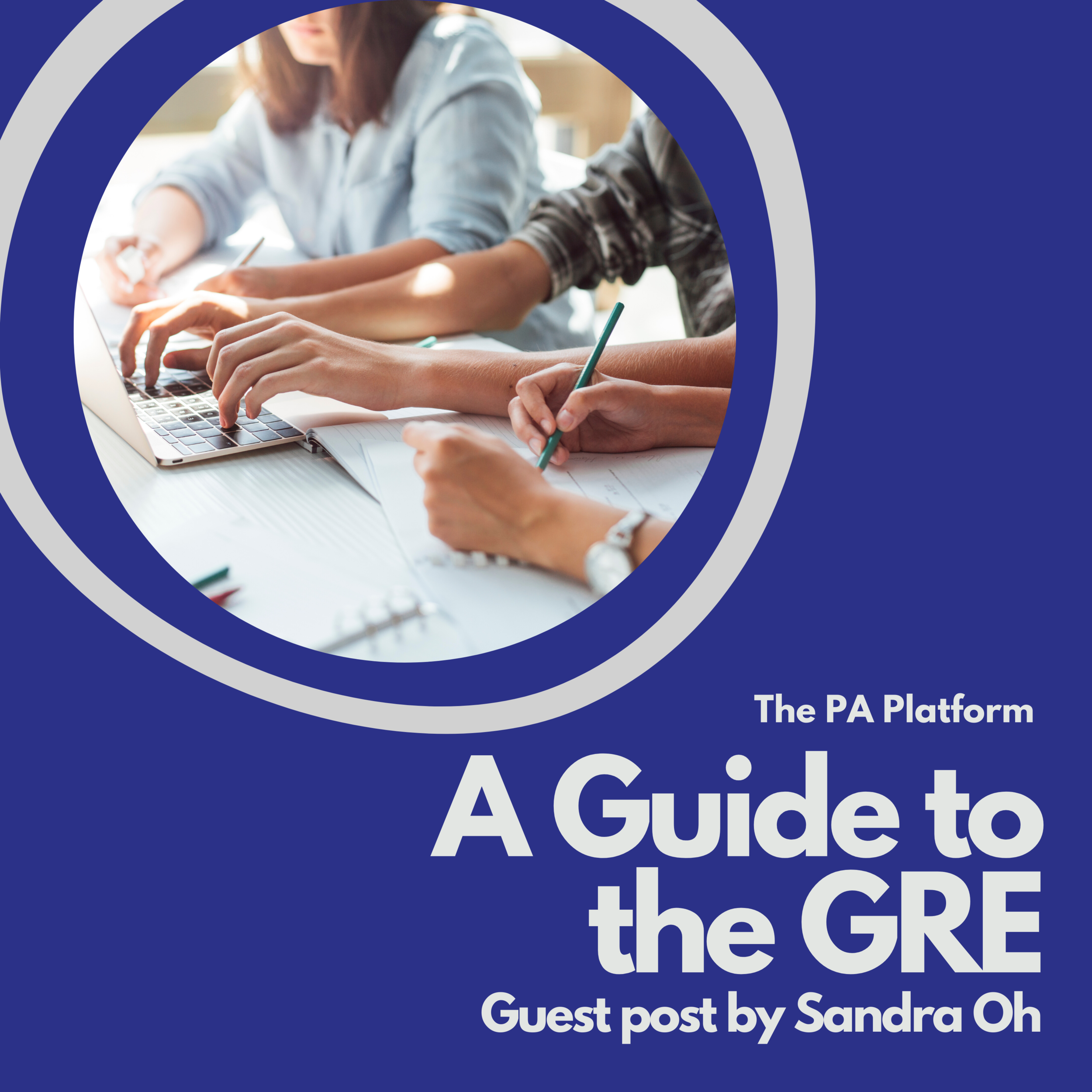**This GRE guide is completely for information only! Sandra made this to share her own experience.**
Background: My prep may look a little different from yours. I prepared extensively for the SAT/ACT before going to university, so I still remembered a lot of concepts that overlapped on the GRE.
1. Magoosh* (highly recommend)
a. They have their own study plans for your anticipated test date! This is helpful whether you’re in a time crunch or have 6 months. Staying on track while self-studying is not easy!
b. I appreciate how it keeps a running tally of your estimated score for verbal and math.
c. Their question bank is extensive, and if you have your practice questions on “practice” mode instead of “quiz” mode, you get lessons on how to do the problems.
d. Each practice question has a “how-to” video and text-only guide that tells you how to do the problem, both verbal and math. It explains why certain answer choices are right and wrong. For the math section, it also teaches you new concepts and shortcuts that might help you solve the problems more quickly and save you some time!
e. They have practice tests that give you a relatively close estimate of your score. My practice exam score was off, so my actual score was higher (I’m not complaining!). I’ve seen that generally people do better on the actual ETS exam. This could be because I wasn’t in “exam mode” during my practice exams, so try to take the exam as you would a real exam!
f. Their website layout is similar to the actual exam, so it forces you to get used to taking an online exam and using the calculator provided!
2. Manhattan Prep 4th Edition Detailed Guidebooks
a. I would recommend this if you are looking for something truly foundational. The books are thorough, helpful, and easy to read and go over.
b. There are 8 books total that break down the whole exam. If you have the time and are committed to learning the ins and outs of the exam, then you will learn so many helpful concepts!
My 5-Week Study Plan (Disclaimer: Do what works for you! Everyone studies a bit differently.):
● Weeks 1-3: Do as many practice problems as possible. I prioritized math, so I always did more math problems than verbal a day. This might seem like a lot, but math is practice and repetition. Always know why you got something wrong. You can flag questions for review and practice on Magoosh. I personally finished almost all of the ones available from Magoosh (700+problems, each subject). Do as many as you can!
○ Time studied per day varies. Self studying at home is hard, because you have to stay focused! I aimed for about 3 hours of intentional, focused learning a day. Don’t be discouraged if some days you can’t- if you feel overwhelmed or burnt out, reduce the time studied per day or take a day off! Time put in reflects on your score, but it’s also important to take care of your mental health.
● 10 days prior leading up to the day before my exam: I took 5 practice exams, 1 day on/off. I reviewed the practice test from the day prior, looking over words and concepts that I got wrong and making sure I understood why so I wouldn’t make the same mistake twice. I didn’t do many practice problems within this period.
○ Avoid burnout! Use this time to get into “exam mode”- it’s important that you’re able to get focused and stay focused for the entirety of the exam. The breaks are meant to be a breather, but do your best to stay strong throughout the exam!
● D-1: Relax. Review words and formulas that you might forget like simple/compound interest. Cramming 1 day before the exam will not help and will probably make you more anxious! If you’re taking it at home, do an equipment check with your computer and make sure that it meets ProctorU guidelines to save yourself some stress before your exam. Get a good night’s rest!
● D-Day: Wake up early and wake up your brain! Go on a walk or do some sudoku. Eat a good breakfast and don’t stress!
Tips:
The first thing you should do is take a diagnostic test. You want to have a ballpark of where you’re starting!
Work with your weaker section first. Remember that your diagnostic score is just your starting point! Don’t get discouraged if it’s not what you thought it was, set a “dream” score and work to achieve it!
If you’re in a time crunch (~1 month or less), prioritize math. Memorizing vocab words and trying to “figure out” reading comprehension takes more time, especially if you’re really trying to boost your score.
This may vary, but I think that math is easier to improve compared to verbal. Like any standardized test, the math section on the GRE is composed of repeating concepts displayed in different forms. If you’re able to practice enough problems and recognize the patterns within math, as well as figure out the conceptual shortcuts, your score should improve greatly.
Make a dictionary (or flash cards). I made a small dictionary out of an old notebook and looked up every word I didn’t know from my practice problems and practice exams. I made mnemonics and tried to review the words when I could. I did see some on the exam, so don’t skip learning words that you don’t know!
Use “cheat sheets” for formulas! Try not to use them in practice exams for the most realistic score. Magoosh has one for math that compiled all the necessary formulas you need on the exam.
Learn how to use the tiny calculator! I know I was stressed when I figured out I had to use the limited on-screen computer. It can recall values though, so that can be helpful with large numbers/long decimals!
Review the essay topics before your exam! All the essay topics are available on the ETS website. You can glance over it and get a feel for what to expect on exam day.
Stats:
*I always did better on quant than on verbal on my practice exams, but I found exam quant to be more difficult.
Hope you found this helpful! Good luck!


















